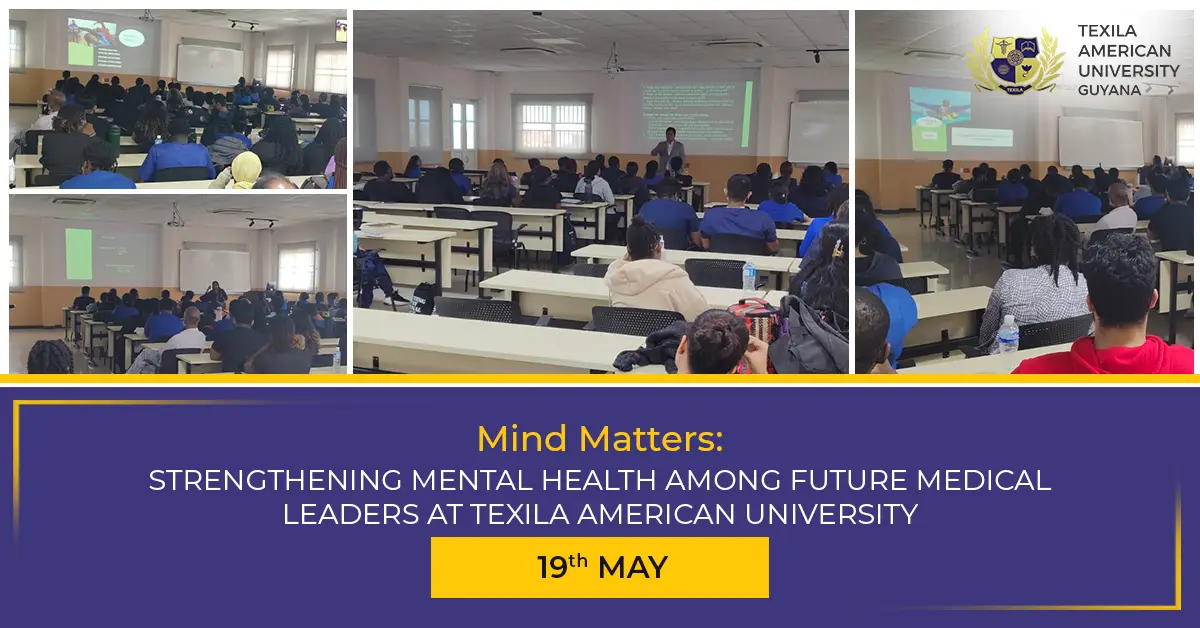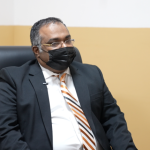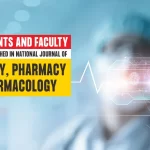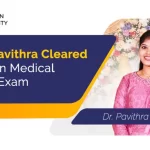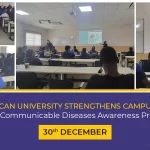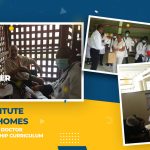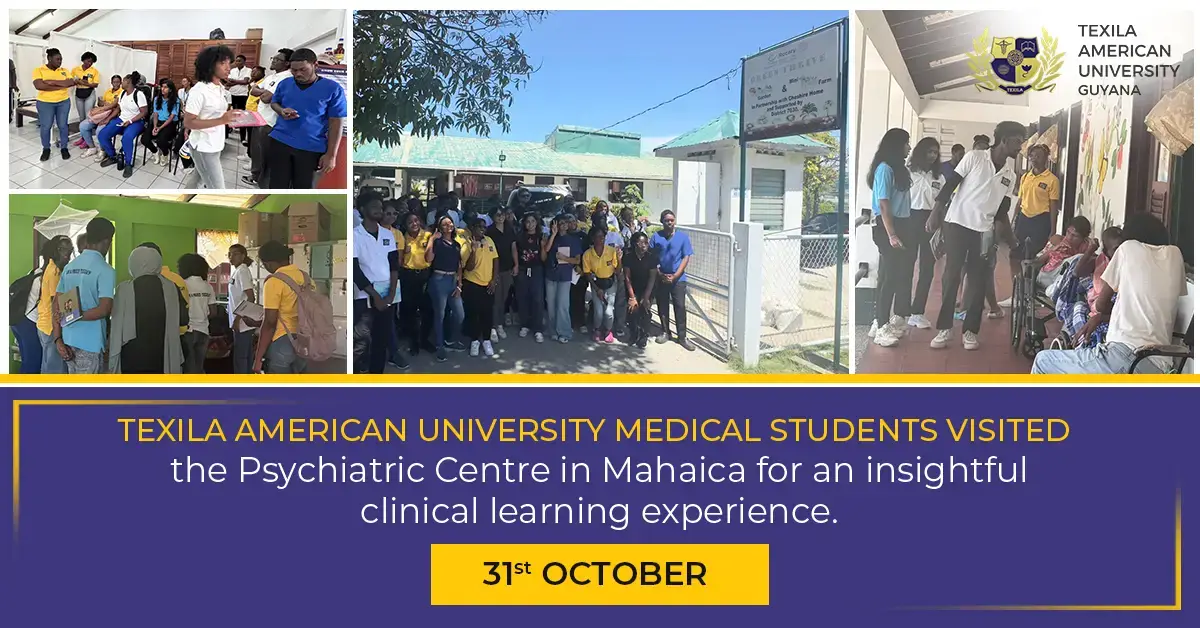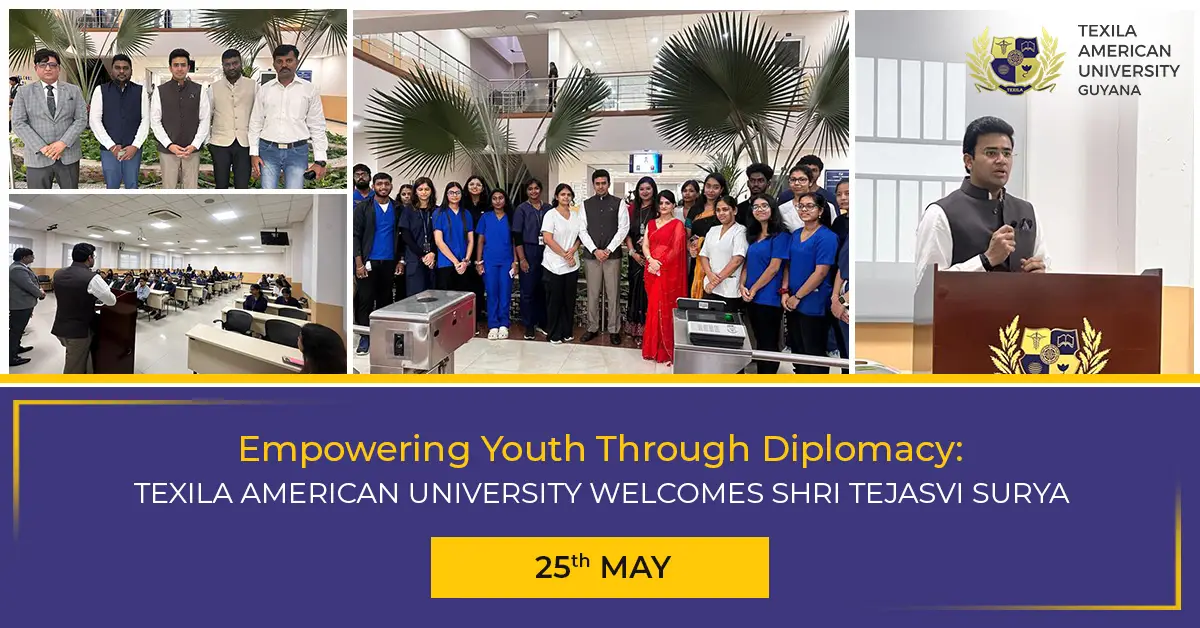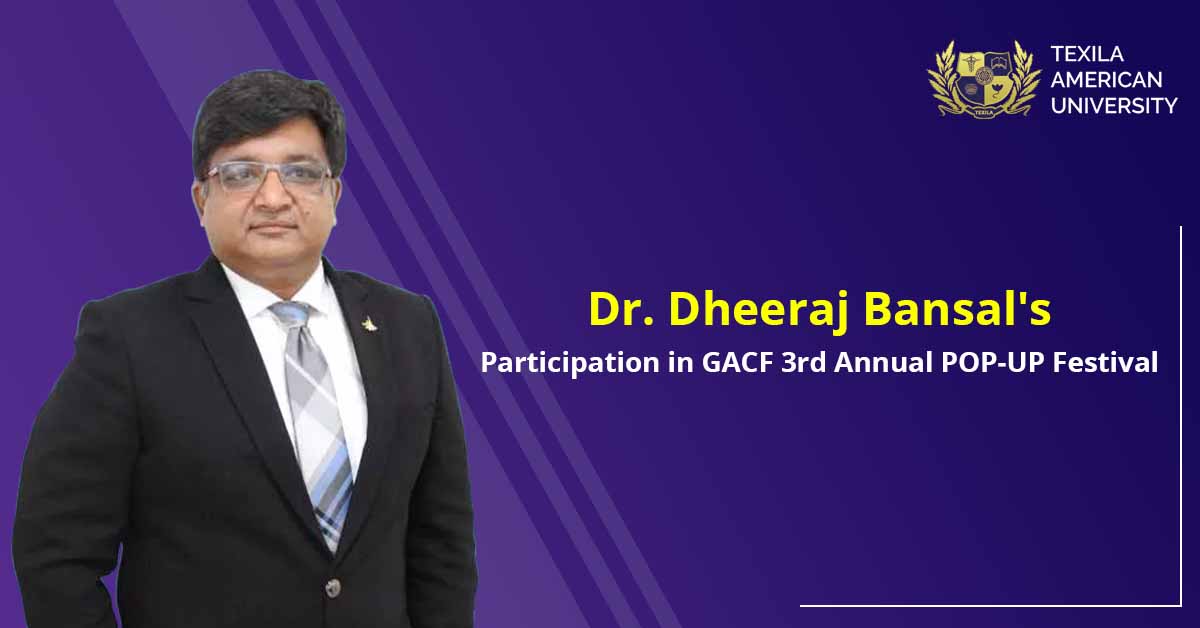At Texila American University College of Medicine (TAUCOM), Guyana, fostering a holistic learning environment goes beyond academics—it includes supporting the mental and emotional well-being of our students. On May 19, 2025, TAUCOM hosted a meaningful and timely Mental Health Awareness Session titled “Coping Mechanisms for Mental Health”, aimed at empowering medical students with essential tools to manage stress and maintain emotional balance.
Held at Classroom B204 at 3:00 PM, the event was part of the university’s broader commitment to creating a healthy, inclusive, and resilient student community. The session was facilitated by Dr. Andria Veeren, an expert in mental health who brought both clinical insights and empathetic perspectives tailored to the needs of aspiring doctors.
A Thoughtful Opening
The session began with an insightful welcome address by Dr. Dheeraj Bansal, Chief Academic Officer and Dean of TAUCOM. Dr. Bansal emphasized the university’s dedication to prioritizing mental health alongside academic excellence.
“Medical education is rigorous, and it demands not just intellectual effort but emotional resilience,” said Dr. Bansal. “At TAU, we understand that mental well-being is integral to student success. We are committed to creating an ecosystem where our students feel supported, valued, and understood.”
His words set the tone for an afternoon of learning, sharing, and self-reflection.
Addressing Real Challenges
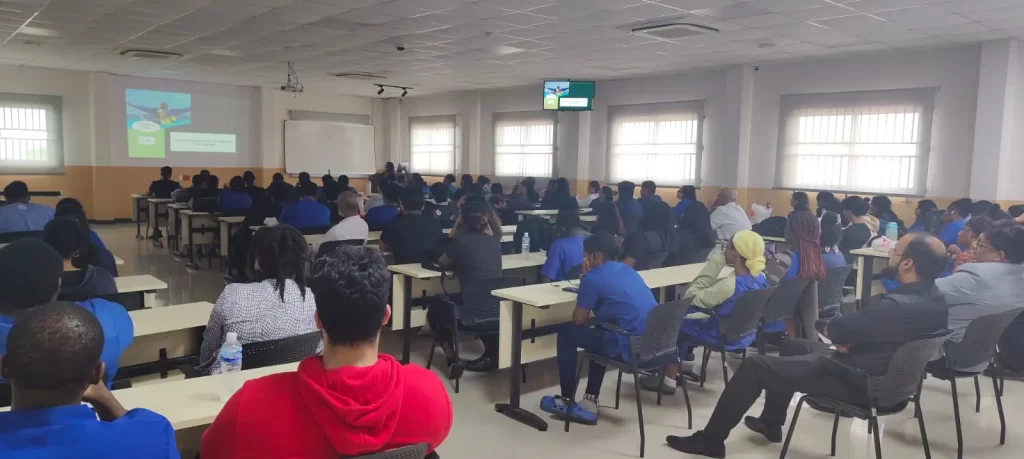
The session, led by Dr. Andria Veeren, focused on real, relatable mental health challenges faced by medical students. With her deep understanding of student psychology and her calm, engaging demeanor, Dr. Veeren captured the audience’s attention and created a safe space for dialogue.
She began by acknowledging the high levels of stress that come with studying medicine—tight schedules, academic pressure, clinical responsibilities, and the emotional toll of patient care. These pressures, if left unchecked, can lead to stress, anxiety, and eventually burnout.
Key Topics Covered
The session was structured around practical, evidence-based topics to equip students with coping mechanisms that are both actionable and effective:
1. Recognizing Signs of Mental Distress
Dr. Veeren educated students on how to identify early warning signs of mental health issues. These included physical symptoms like fatigue and sleep disturbances, emotional changes such as irritability and hopelessness, and behavioral shifts including social withdrawal or lack of motivation.
She stressed the importance of self-awareness and the ability to recognize these signals before they escalate.
2. Time and Stress Management Techniques
Managing the demands of medical school requires more than just good study habits. Dr. Veeren shared strategies such as:
- Prioritizing tasks using the Eisenhower Matrix
- Setting realistic goals and breaking them into smaller, manageable steps
- Using mindfulness techniques like deep breathing and meditation to calm the mind
- Taking scheduled breaks to prevent mental fatigue
Students were encouraged to adopt these techniques into their daily routines to build resilience and avoid burnout.
3. The Power of Peer Support
One of the most empowering messages of the session was the value of peer support. Dr. Veeren highlighted how connecting with fellow students can provide emotional validation and mutual encouragement. Creating an environment where it’s okay to talk about feelings and seek help from friends can reduce the stigma around mental health.
4. Professional Resources and Counseling
Importantly, Dr. Veeren informed the students about the mental health resources available both on and off-campus. These include:
- TAU’s student counseling services
- 24/7 helplines for immediate support
- Workshops and peer mentoring programs
- Referral options for specialized mental health care when needed
She reminded students that seeking help is not a sign of weakness, but a proactive step towards well-being.
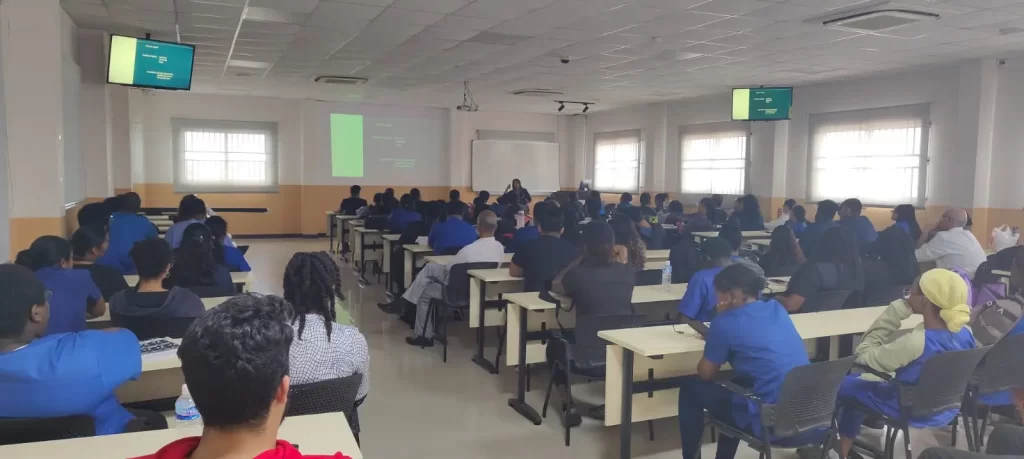
Interactive and Inclusive
What set this session apart was its interactive format. Students were encouraged to voice their concerns, share personal experiences, and ask questions. This participatory approach helped break down barriers and encouraged open conversation—a critical step in changing how mental health is perceived and addressed.
One student shared, “It was refreshing to have a session where we weren’t just talked at, but with. I felt heard and understood, and I’m walking away with tools I can actually use.”
A Vision for Student Well-being
The session concluded with closing remarks by Dr. Dheeraj Bansal, who reiterated the university’s commitment to mental health and well-being. He praised the students for their active participation and encouraged them to continue the conversation with their peers and mentors.
“Let’s normalize talking about mental health. Let’s make it as common as discussing grades or exams. Only then can we truly support each other,” Dr. Bansal remarked.
A Lasting Impact
This event was more than just a one-time session—it was a milestone in TAUCOM’s ongoing journey toward promoting mental health awareness. It served as a vital reminder that academic achievement and emotional well-being are not separate goals, but interwoven aspects of a successful medical education.
By addressing these concerns head-on and providing students with accessible tools and resources, TAUCOM is taking meaningful steps to create a culture where mental health is prioritized, respected, and supported.
Event Highlights
Here are some moments captured during the session:
- Students actively participating in discussions
- Thought-provoking presentations by Dr. Veeren
- Group sharing activities that fostered connection and understanding
- Smiling faces that reflected both relief and renewed hope
These images underscore the positive energy and community spirit that defined the day.
Looking Forward
At TAUCOM, this event marks just one of many upcoming initiatives focused on student engagement and wellness. As future healthcare professionals, our students will one day care for others—so it is essential they learn first to care for themselves.
The Mental Health Awareness Session was not only informative but transformative. We look forward to more such initiatives that nurture not just great doctors—but healthier, happier human beings.

